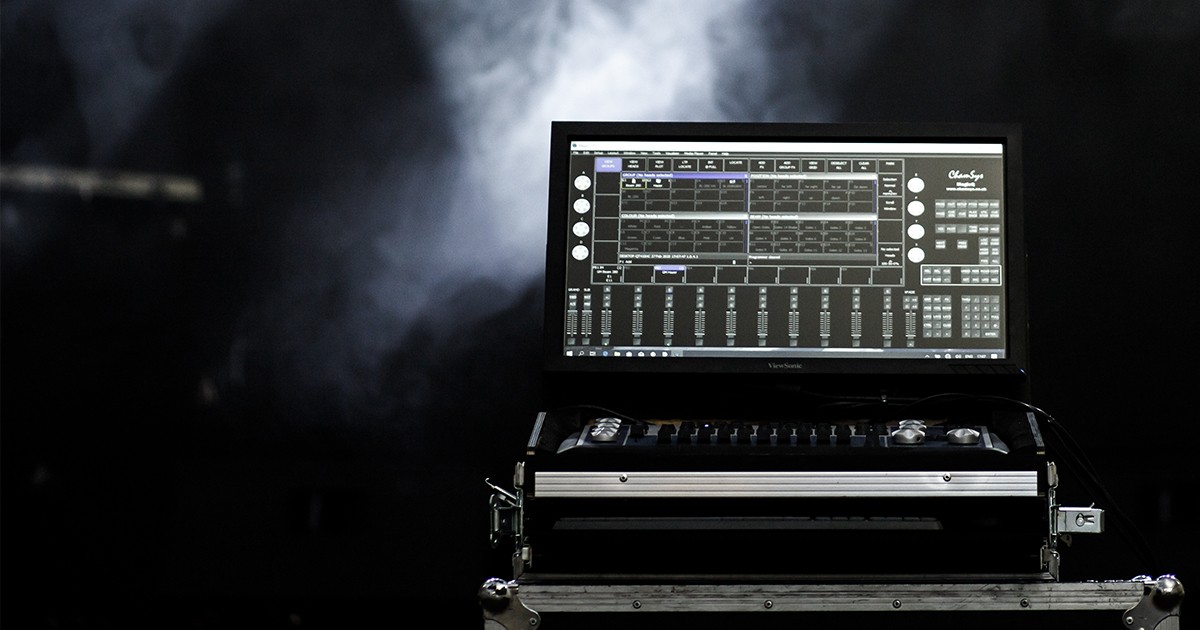
By Craig Cotter
You told me
with no sense of tragedy
what good fortune it was
the year before
when you were 23
the old light board
had electrocuted the boy running it.
You’d told the district
it wasn’t safe,
but they’d blown-off the 23-year-old teacher
fresh from The Tonight Show with Johnny Carson in New York.
That after the boy’s death
you insisted on a professional, theatre-grade light board.
You guilted the school board
into buying the one you wanted,
a system far beyond what any high school in Michigan had—
50,000 1974 dollars—
but we deserved it.
They’d ignored your warnings,
let a teen die,
but not for art.
*
I was 14,
knew nothing about theatre, acting, lights.
And you methodically
taught me the light board and all the stage lights,
how to place gels for different effects—
a thorough primer.
And then you had me hold forth—
gave directions on affects you wanted—
if I asked for further instruction
you no longer dealt with the technical,
only with art,
what you wanted to see on stage.
You had confidence I could figure-it-out.
“You’ll do it—”
“You’ll get it!”
“No—no!—not that!”
More direction.
*
You made it clear
that all in the company were equal—
tech equal to actors.
If an actor cut-up
during a technical rehearsal
you’d dress-them-down
from the audience
or walk on stage—
Art—
if sets, lighting, costume, makeup,
special effects, acting
were not equal,
our plays wouldn’t deserve an audience,
wouldn’t be worth our time.
We’d become fuck-ups
just as we were beginning
to take ourselves seriously.
He blasted us into adulthood
with all the silliness and camp of an out, gay teen.
“Oh, God, YES!”
he screamed from the dark house
at one rehearsal
when I got the green lights right
on Dracula.
My 7th attempt.
Previous “failures”
only met with respect—
“You’ll get it—”
“You’ll figure-it-out.”
The Light
of no more technical instruction—
I learned how the plugs in the stage floor worked
for lamps and dry ice machines,
how to light a castle.
I’d dim the auditorium,
try an effect,
walk through the theatre seats,
looking at the stage—
at 14 he trusted me to get it right.
I was 6 seconds from Nothing.
He said none of the cliches and figures-of-speech about art—
he believed in us—
considered us artists.
*
Karo syrup blood-making parties.
The prop loft high above the stage
full of couches, chairs, costumes,
teenagers finding their ways.
You paid for extra sugar glass bottles for rehearsals,
the school district only funding them for performances.
Paid for the rights to “Who Do You Love, I Hope?”
not in the original package sold to high schools
of Annie Get Your Gun—
because you loved it.
Wanted us to feel it.
*
After Michael retired
he contacted scores of former students
that had spread-out across North America.
Got in his Cadillac
and spent 2 to 3 days with each of us.
I was covered in grime and sweat
cleaning my LA apartment
when he arrived.
He sized-up
the situation
immediately:
“You are expecting me tomorrow, aren’t you?!”
he said with a laugh.
We hugged, I welcomed him in,
put away the cleaning supplies, took a shower.
When I returned he said,
“I’ve had this on my desk since you gave it to me 32 years ago—”
handed me a typed chapbook of my earliest poems.
An original copy.
Poems I’d lost along the way.
Juvenilia—
not sure how scholars and artists I was studying with at State
could have encouraged
such lost, slack work.
(After high school I was at Michigan State.
He’d moved from Waterford to Midland.
I’d visit him some weekends, East Lansing so close.
Another gift—
he knew then
when I was 17
18
19
I was taking further dips
into art.
I was becoming more serious
and more wild
—he cherished my poem-attempts.
*
We were closeted in high school,
had to be.
Our fagness a psychiatric illness.
He would not have been hired as a teacher,
I would have been sent to the Eastern Michigan Asylum for the Insane
for shock treatments.
Over sushi one night,
shabu-shabu another,
we covered that ground,
suffering and joy,
and how we could now
be more completely ourselves.
*
Then theatre and poetry.
Gay jokes and the struggles
to make art
that took you three years later at 70.
*
You were the first Artist I met
generous
who wanted to take us